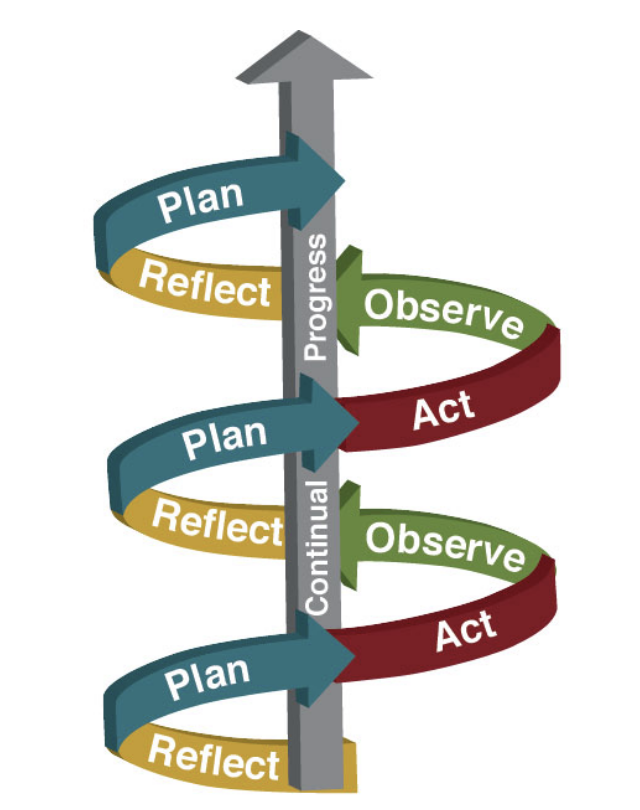Approaches to Professional Learning #5: Action Research
To some extent, “action research” is formalizing something that good educators do informally all the time. Every time a teacher ponders a challenge they are facing in the classroom, considers possible interventions to address the challenge, selects and implements one of those interventions and observes the outcomes, that teacher is engaged in action research. There seems no reason to interrupt such moment-by-moment responsive decision-making on the part of professionals.
However, there are some good reasons for leaders of professional development to consider also creating the space (time, funds, training, support structures) to encourage their teachers to engage in this process in a more formal manner.
- Intentionality. A formal process can help staff choose the most important educational challenges to work on. Challenges to be researched can be chosen based on their importance for the advancement of the school’s mission and vision, and studied in a systematic manner.
- In-School Collaboration. When teachers recognize that they face a similar challenge, they can design and work on an action research project together. Collaborating will likely result in a clearer understanding of the educational challenge, a more extensive list of possible interventions, and a more comprehensive analysis of the data. The outcome is likely to be a more effective solution to the problem than a teacher working with only their own creativity to plan and their own eyes to observe.
- Between-School Collaboration. A teacher, or team of teachers, who formally plan, carry out and document their research are able to share their learning with professional colleagues in other places (eg. through publishing papers or presenting at conferences). Being involved in such work increases the professional knowledge available to all of us, and increases teacher self-efficacy.

- Perseverance and Sustainability. Action research is an iterative cycle. If a planned intervention fails, or only partly succeeds, to deliver the desired results then the cycle repeats itself. However, what has been learned from the first cycle is not lost – a new cycle begins from a more knowledgeable place than the first. A formal structure in place to support action research can help teachers remain focused and motivated to keep working through this iterative cycle.
What I like about this approach:
- Professional learning is focused on real problems of student learning in the local context.
- Teachers are empowered to make decisions and solve problems that impact them. They own the problem and the solution.
- The potential for meaningful collaboration between teachers and schools.
Some challenges I see with this approach:
- Time needs to be allocated to allow for teachers to engage in research.
- Structures (schedules, processes for approval of proposed projects, funding, accountability) to support action research will need to be put in place by leaders/administrators.
- Teachers may need training and support to understand the benefits of action research and to develop the skills of research design, data collection and analysis, and research reporting.
To explore this approach more…
An action research case study: https://www.edutopia.org/article/how-teachers-can-learn-through-action-research
A detailed outline of the process: https://www.thecreativeeducator.com/v07/articles/Embracing_Action_Research
Book: “Action Research: Improving Schools and Empowering Educators” by Craig A. Mertler

Comments